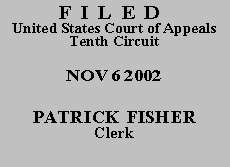

| OLIVIA J. HOUSLEY,
Plaintiff - Appellant, v. THE BOEING COMPANY, Defendant - Appellee. |
|
Plaintiff-appellant Olivia J. Housley appeals from the district court's order granting summary judgment on her employment discrimination claim in favor of defendant-appellee The Boeing Company. Housley's complaint alleges that by failing to promote her to certain management positions, Boeing discriminated against her (1) on the basis of sex, in violation of Title VII of the Civil Rights Act of 1964, 42 U.S.C. §§ 2000e to 2000e-17 and (2) on the basis of age, in violation of the Age Discrimination in Employment Act, 29 U.S.C. §§ 621-634 (ADEA).(1) As amended, her complaint also alleges that Boeing retaliated against her for bringing this action.
In its carefully-considered order of summary judgment, the district court addressed the evidence presented in the light most favorable to Housley. The district court concluded that even if she had presented a prima facie case of discrimination, she had failed to offer any evidence to rebut Boeing's assertions of legitimate, nondiscriminatory reasons for its decisions to promote others rather than Housley. The district court further concluded that summary judgment should be granted on Housley's retaliation claim because she had failed to establish a prima facie case of retaliation.
In her pro se appeal brief, Housley raises a total of six issues. Three of her issues challenge alleged factual misrepresentations made by defendant's counsel to the district court. We reject these challenges out of hand, for two reasons. First, Housley does not demonstrate how the alleged misstatements of fact led to district court error. Such a showing is crucial, because this court reviews for error in the district court's order, not in the parties' briefs. Second, Housley admitted the truth of each of the challenged facts, for summary judgment purposes, in her response to Boeing's statement of uncontroverted facts. See D. Kan. R. 56.1(a). She has therefore waived any appellate challenge to the admitted facts. See, e.g., Tobey v. EXTEL/JWP, Inc., 985 F.2d 330, 333 (7th Cir. 1993).
Housley's remaining three issues raise specific objections to the district court's summary judgment order. Concerning her age and sex discrimination claims, she contends that the district court failed to consider her claims in the proper context of Boeing's "Phase I" and "Phase II" hiring procedures. Concerning her retaliation claim, she contends (1) that Boeing management personnel who allegedly retaliated against her had specific knowledge that she had filed this action; and (2) that she identified specific positions that she requested but did not receive after she filed this action.
Our standard of review calls for us to review the district court's summary judgment disposition de novo:
We review the district court's grant of summary judgment de novo. Summary judgment is appropriate if the pleadings, depositions, answers to interrogatories, and admissions on file, together with the affidavits, if any, show that there is no genuine issue as to any material fact and that the moving party is entitled to a judgment as a matter of law. When applying this standard, we view the evidence and draw reasonable inferences in the light most favorable to the non-moving party.
Tax & Acct'g Software Corp. v. United States, 301 F.3d 1254, 1257 (10th Cir. 2002) (citations & quotations omitted). Having carefully reviewed each of the errors Housley raises and the district court's summary judgment disposition in light of the above-referenced standards, we conclude that she has failed to demonstrate reversible error and that the district court properly entered summary judgment in favor of Boeing. We therefore AFFIRM the judgment of the United States District Court for the District of Kansas for substantially the same reasons stated in the district court's memorandum and order of December 3, 2001.
Entered for the Court
Circuit Judge
*. This order and judgment is not binding precedent, except under the doctrines of law of the case, res judicata, and collateral estoppel. The court generally disfavors the citation of orders and judgments; nevertheless, an order and judgment may be cited under the terms and conditions of 10th Cir. R. 36.3.
2. The Honorable John L. Kane, Senior District Judge, United States District Court for the District of Colorado, sitting by designation.
1. Housley's complaint also contained claims under the Kansas Age Discrimination in Employment Act, Kan. Stat. Ann. §§ 44-1111 to 44-1121, and the Kansas Act Against Discrimination, Kan. Stat. Ann. §§ 44-1001 to 44-1044. The district court dismissed these claims, noting that Housley conceded failure to exhaust her administrative remedies with respect to them.